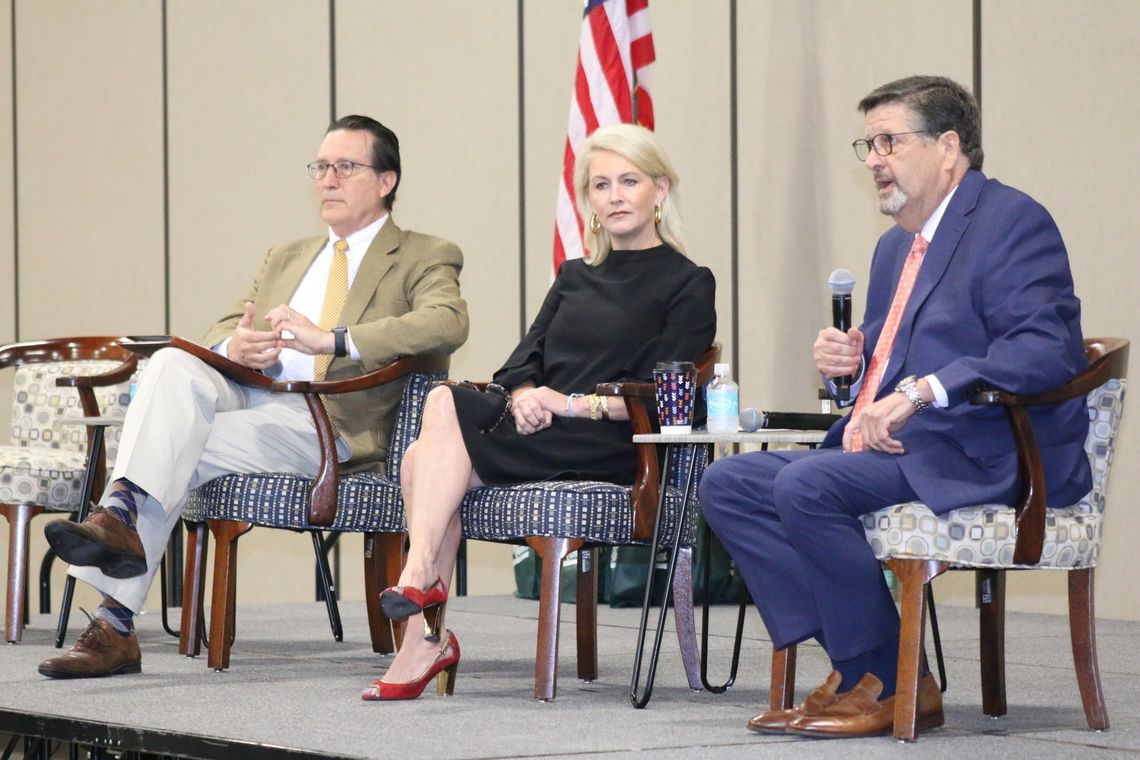As state leaders ready for the 88th legislative session, the sunsetting of a major tax incentive to draw businesses to Texas is on the minds of industry leaders and small businesses alike.
At the panel discussion on economic development at the Greater Taylor Chamber of Commerce’s Pre-Legislative Summit Sept. 7 at the Williamson County Expo Center, business leaders decried the potential loss of the Chapter 313 agreement, which gives industries coming to Texas a 10-year break on property taxes and is due to expire at the end of December.
“The expiration of the chapter 313 is a huge deal, and we are going to be focusing on that as a key issue this legislative session,” said Stephanie Matthews, senior vice president of advocacy at the Texas Association of Business, which is the state’s chamber. “We traveled to a chamber, and the executive director was in tears, like literally this is going to kill us. We have a project that we have been planning for and with the expiration of this we are not going to be able to receive the end of it, and it will kill our community ... For TAB, this is our small business Super Bowl.”
At the panel discussion, moderator Mark Thomas, president and chief executive officer of the Taylor Economic Development Corporation, said that without this incentive, it was unlikely that Samsung Austin Semiconductor would have come to Taylor.
“I believe that Samsung would not be here without that tool,” Thomas said. “Because of threats globally to chip production ... there is a desire to onshore chip manufacturing. Not having the 313, we heard that there could be 12 to 15 more semiconductor projects outside of Samsung.”
Dale Craymer, the president at Texas Taxpayers and Research Association, said Texas has a lot going for it, being centrally located, good weather, decent infrastructure, a pro-business regulatory environment and a motivated workforce. However, he said it also has some of the highest property taxes in the nation.
“Our property taxes create a substantial barrier to investment which is why we are talking about incentive programs in part today,” he said. “These incentive programs are trying to alleviate the distortions that our tax policy decisions have created today with our high reliance on property taxes.”
Still, leaders said they were optimistic about the future of the region staying open for business.
“The economic development situation in Texas is at a challenging point with the expiration coming up of the 313 in December, we are going to definitely have a challenge renewing it, but we are optimistic,” said Tony Bennett, president and CEO of the Texas Association of Manufacturers. “All of our industry groups are working together to come up with key concepts that will be necessary to pass it successfully within our legislature.
Bennett said due to the pandemic and the Ukraine war, the global supply chain has been disrupted, causing many industry leaders to take steps to re-shore production back to the United States, the largest economy in the world.
“We want them to pick Texas,” Bennett said. “And that’s what we strive for daily in our work, and in order to do that, we cannot afford to be without a school property tax incentive program.”





